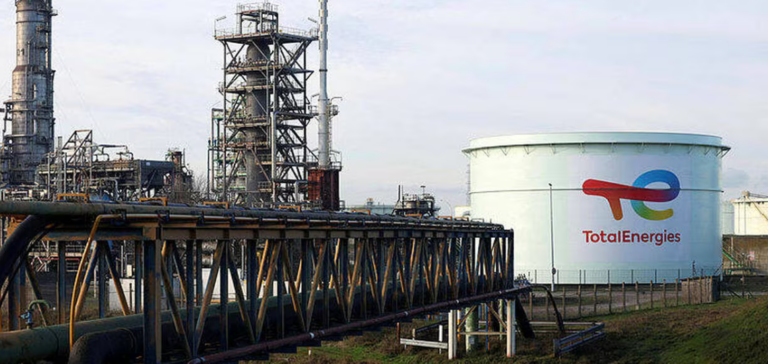In a climate of growing mistrust between environmental organizations and industrial giants, the situation between Greenpeace France and TotalEnergies takes a notable judicial turn. Indeed, this legal confrontation highlights the growing difficulties in finding common ground between ecological imperatives and economic interests.
The Controversial Greenpeace Report
At the end of 2022, Greenpeace published a revealing report, claiming that TotalEnergies’ greenhouse gas emissions were four times higher than the company officially declared. However, this report raises a crucial question: the reliability of methods used to calculate companies’ carbon footprints. TotalEnergies, reacting quickly, criticized the report’s methodology, calling it dubious and pointing out numerous errors and approximations.
TotalEnergies: Reaction and Lawsuits
TotalEnergies’ response was swift. In April, the multinational filed a civil suit against Greenpeace and Factor-X, the firm that produced the report, for disseminating false information. However, the company is demanding that the report be withdrawn from their sites, that its distribution be halted, that a symbolic one euro be paid in damages, and that 50,000 euros be paid in legal costs. This approach illustrates a strategy aimed at protecting its reputation and economic interests.
Greenpeace Defense: Freedom of Expression and Transparency
Greenpeace is not sitting on the sidelines. Clara Gonzales, a lawyer with the NGO, denounces TotalEnergies’ attempt to restrict freedom of expression. Indeed, the environmental organization emphasizes its role in raising awareness of corporate responsibility in the climate crisis. Greenpeace stresses the importance of companies being transparent about their greenhouse gas emissions, pointing the finger at TotalEnergies’ carbon neutrality strategy, which it considers insufficient.
Legal Issues and Intimidation Strategies
Greenpeace’s argument goes further, criticizing TotalEnergies’ choice to use stock market law for its lawsuit rather than a criminal defamation action. Greenpeace interprets this maneuver as an attempt to circumvent press freedom laws, which provide guarantees for the use of freedom of expression. In addition, the NGO highlights a worrying trend: the increase in attempts at judicial intimidation against civil society, not only in France but also internationally, with similar cases in the UK and Italy.
The debate raised by this case goes beyond the borders of these two entities. It highlights the need for reliable, transparent carbon accounting, which is essential if we are to define a climate strategy appropriate to the current emergency. Moreover, TotalEnergies’ lawsuit against Greenpeace is not just a legal dispute, but also a symbol of the challenges encountered in the quest for greater corporate environmental responsibility.
This face-off between Greenpeace and TotalEnergies underlines the complexity and urgency of the climate issue. It highlights the crucial role of transparency and accountability in the fight against climate change, and opens up an essential debate on the reliability and methodology of corporate carbon accounting.






















